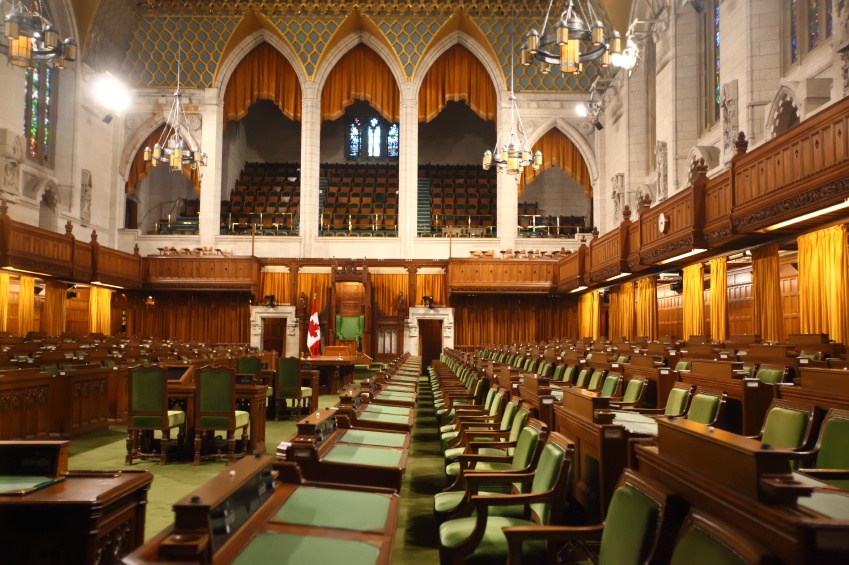Home » Uncategorised »
Criminalisation of Landlords by Right to Rent Discussed in Commons
This article is an external press release originally published on the Landlord News website, which has now been migrated to the Just Landlords blog.

The criminalisation of landlords by the Right to Rent scheme has been discussed in the House of Commons.
Strong concerns were raised that landlords or their letting agents would automatically be committing an offence if the Home Office informs them that a tenant is in the UK illegally.
James Brokenshire, the Immigration Minister, said that he would “reflect carefully” on the worries expressed.
The Right to Rent scheme was introduced by the Immigration Act 2014, but the Immigration Bill 2015 will criminalise breaches of the regime and will be enforced across England from 1st February 2016.
The 2014 Act imposed civil penalties, but the new Bill will implement criminal sanctions.
In a committee session on the new Immigration Bill, various suggested amendments were discussed.
Keir Starmer, Shadow Home Office Minister, expressed: “The scheme has flaws… it includes provisions that put landlords in an impossible and unacceptable position because they become criminals on a date when they cannot do anything about that criminality.
“If it is brought to a landlord’s attention that they have someone in their premises who does not have a right to rent, they are duty-bound.
“It would be entirely appropriate for them to begin eviction proceedings from the moment they find out about the illegal tenant, but the landlord is already criminalised.
“They have become a criminal; they simply have not been prosecuted and charged. I cannot see any reason or need for that.”1
Starmer is the former Director of Public Prosecutions and Head of the Crown Prosecution Service.
He supported an amendment to give landlords two months to evict a tenant after learning that they are in the UK illegally. A further amendment would make sure that there would be no retrospective penalties.
Anne McLaughlin, an SNP MP, stressed the point: “As currently drafted, the bill would mean that as soon as a landlord receives a notice from the Secretary of State that the tenant does not have the right to rent, they would automatically be committing a criminal offence.
“That is despite the bill requiring landlords to give tenants 28 days’ notice to leave the property under the proposed eviction procedure.”
She also fears that landlords will get caught between housing law and the requirements of the Immigration Bill: “It is a case of ‘Which law will I break?’ Which of those laws would the minister suggest it is better to break?”1
Brokenshire responded: “Amendment 71 would protect a landlord from potential prosecution where they have taken action to evict a tenant who is an illegal immigrant within two months of receiving a Home Office notice.
“There is a technical issue with the amendment however, as it provides for that defence only when a landlord has taken eviction action under the additional routes provided in proposed new sections 33D and 33E of the Immigration Act 2014, inserted into the Act by clause 13.
“The amendment would provide no defence where a landlord is able and chooses to pursue eviction under existing routes.”
He explained: “For example, a landlord may be able to pursue a no-fault eviction under section 21 of the Housing Act 1988 or use other grounds available under section 8 of that Act.
“In some circumstances, the proposed defences would not be available.”
The committee also addressed concerns raised by David Smith, Policy Director of the Residential Landlords Association (RLA). He worries that landlords will become risk-averse, causing them to discriminate against prospective tenants they believe to be non-British.
A letter from the RLA to Brokenshire was also discussed. It detailed a number of fears, including a worry that law-abiding landlords would feel that they are facing substantial fines or imprisonment.
The letter also believes that there is a potential for chaos, as the 2011 Census revealed that 16.5% of private tenants do not have a passport.
Brokenshire does not agree with the RLA. He said: “Landlords conduct some checks; they might not be focused specifically on a tenant’s right to be in the country or who they are renting their property to. Many use agents to conduct credit and other checks.
“There is a sense that landlords in the rented sector will be vigilant. They have been or will be doing those general checks.
“The offence is only if they know or have reasonable cause to believe that someone in their rented property does not have the right to be in the country. We are setting a relatively high bar. We will give that clarity to the Residential Landlords Association.”1
What are your concerns surrounding the new Bill?





